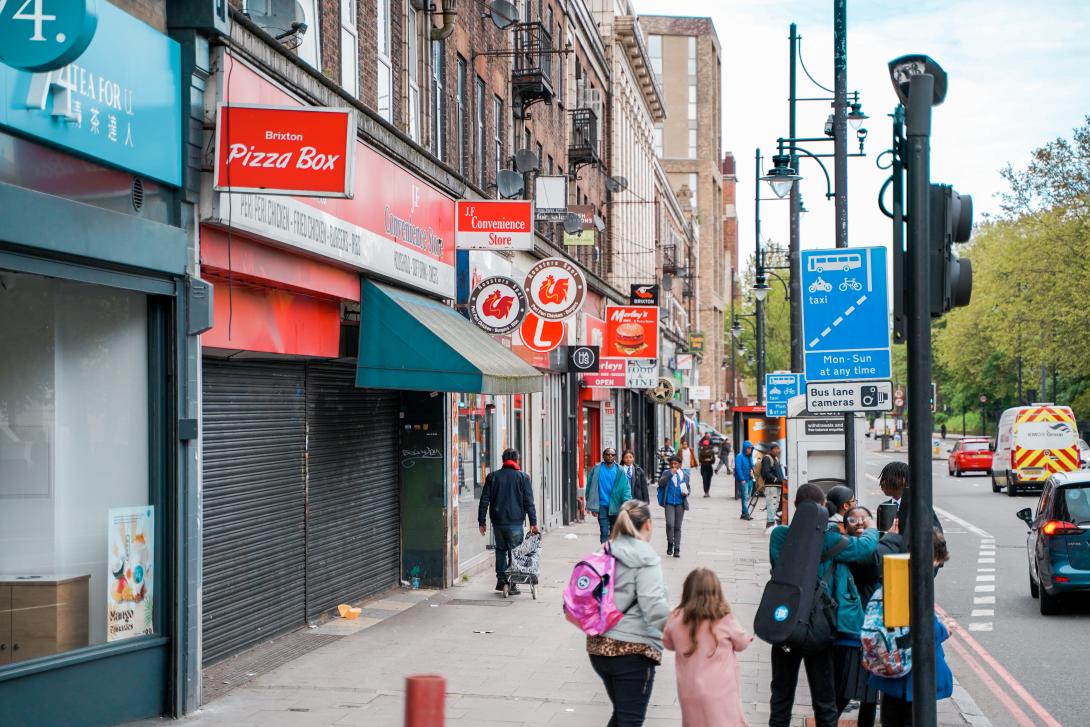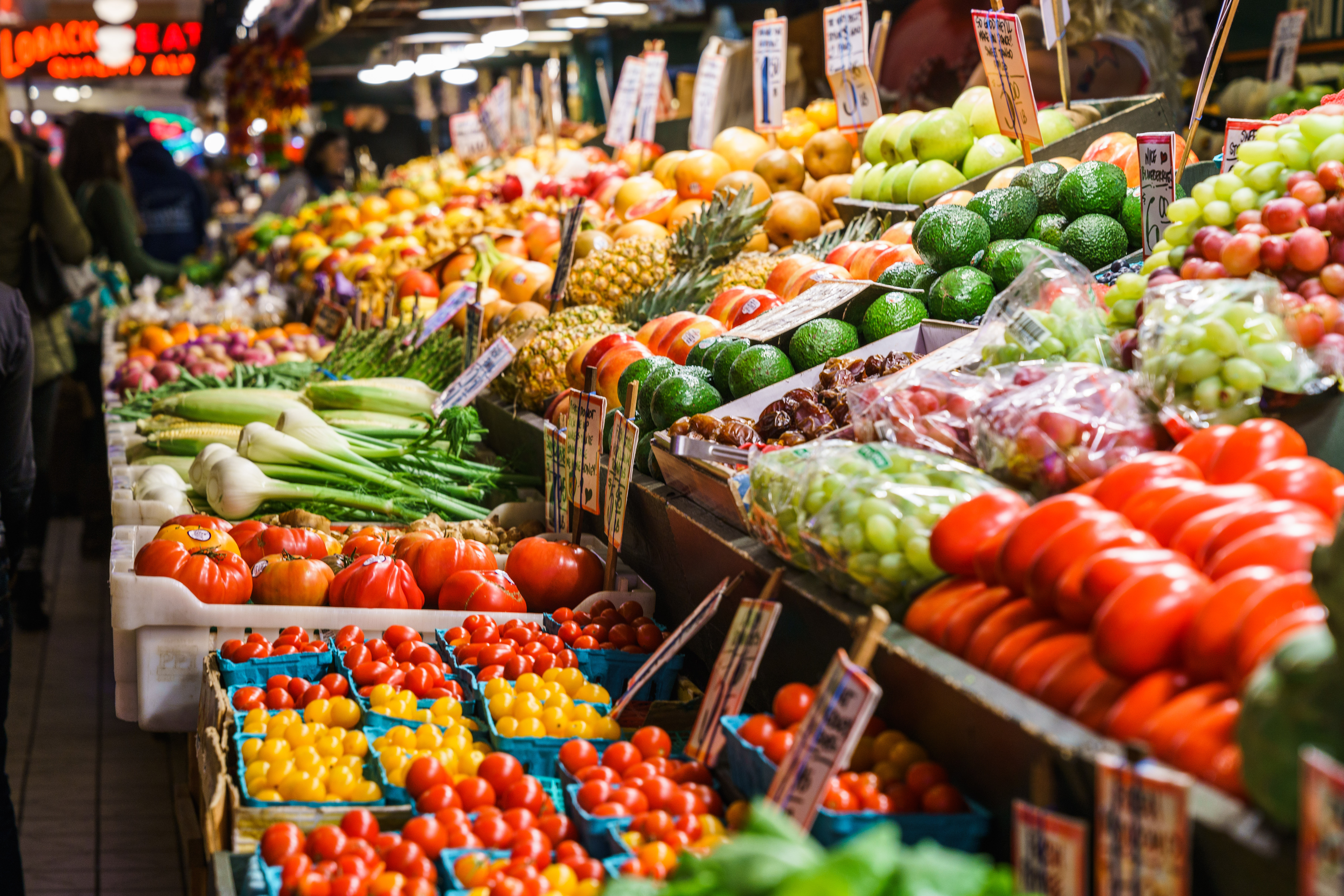11 November 2024
'I didn’t choose to eat unhealthily my circumstances made the choice for me'

The harsh reality of not having reliable access to enough affordable, nutritious food, by Food Ambassador Zahistha
I'm a Food Ambassador, as well as associate nutritionist working with communities in South London who are living with pre-diabetes.
The House of Lords Select Committee recently published its findings on Food, Diet & Obesity. As part of their evidence gathering, the committee looked at making food environments healthier alongside the cost of a healthy diet.
From experience, I know that the UK’s current food system is not delivering health to everyone equally. So, what are some of the issues?
The graph below shows Food Foundation research which found that in the 5th most deprived areas, households would spend up to 50% of their disposable income on food.
This increases to 70% in households with children, and as quoted in the report, Food Ambassador Kathleen Kerridge shared that she has to spend 80% of her household’s disposable income to achieve a healthy diet.
I saw these challenges as an international student, as well as now in my community and those I work with.
Living in East London, I personally know how challenging it can be to find affordable, nutritious food, especially as an international student with tight budget and hectic schedules.
Yes, options like lentils, beans, and tinned fish are available in local shops and supermarkets (although affordability varies), but balancing healthy eating amidst study and part-time hustles is almost impossible.
It wasn’t always easy, especially when prices fluctuated. I remember buying two medium ripe organic avocados for less than £2 when I came to the UK in 2022 and now it's more than £2.50. Luckily, I have learnt my way through finding cheaper alternatives, but what about those who don’t know how to, or simply can’t?
Food insecurity is a harsh reality in many of the communities I work with and something I have dealt with myself. It means not having reliable access to enough affordable, nutritious food.
It forces us to make difficult choices: like between eating well or eating to stay full. I still remember quickly eating two snickers bars before running to university. I did this because they were barely £2 and provided enough calories for the day, and didn't consume time to prepare or eat.
I didn’t choose to eat unhealthily, my circumstances made the choice for me.
Food insecurity really limits people’s 'choice' over a healthy diet because fresh fruits, vegetables, and high-quality proteins are often more expensive and less accessible.
This is especially true in areas where affordable supermarkets are scarce. My high street just has Lidl, Tesco (the small outlet with just processed foods), Sainsbury and Iceland. I can only do shopping only on the weekends.

Unlike the people who use their own vehicle drive to the far away outlets of Asda and Morrisons for cheaper versions, I have to run to Lidl to get the last available fresh fruit and veg.
I simply don't have enough time spend over an hour travelling, or income to spend £3-4, when I could use that to buy additional food that will literally feed me for a day.
The current cost of living crisis underscores the need for a food system that prioritises health equity. To ensure the Eatwell Guide is truly accessible to everyone, particularly those on low incomes, it needs to emphasise affordable and nutrient-dense foods that are readily available in local communities.
This includes focusing on low-cost protein sources such as lentils, beans, and tinned fish, alongside seasonal fruits and vegetables, which are often cheaper and retain high nutritional value.
My take? Follow the recommendations:
- Ensure the government immediately commences "publication of quarterly estimates of the costs of a weekly healthy food basket" and reports these findings to "Parliament alongside progress towards targets on population nutrition and public health".
- I would also like to see the government “introduce measures to make healthier food more affordable. How? “Urgently commission a comprehensive review of the evidence on the most cost-effective interventions to drive businesses to produce and market healthier, often unprocessed or minimally processed fruits and vegetables, legumes, nuts, seeds and whole grains and to drive up consumption of those foods. This should include consideration both of universal subsidies and of targeted measures to support people on low incomes".
As mentioned earlier, I work in with communities with pre-diabetes. In an ideal world, this would mean they still time to prevent the development of type 2 diabetes and related health issues. In reality, for those on low incomes, the options are very limited.
The Government should be doing so much more to ensure that people can access and afford nutritious food. Stop ignoring our calls for change, embrace the recommendations set out by the Committee and support a more sustainable and healthier future for all.





